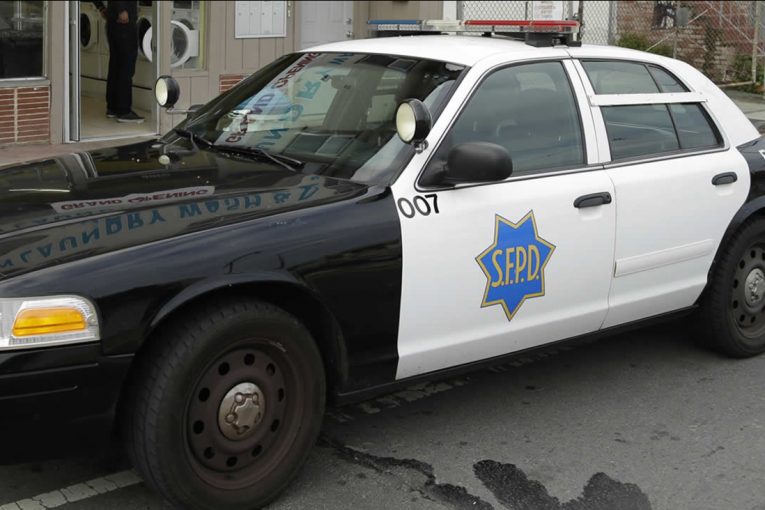

By David M. Greenwald
Executive Editor
San Francisco, CA – When Chief Bill Scott of the San Francisco Police Department pulled out of an MOU in early February, Attorney Curtis Briggs who represents the man allegedly beaten by Officer Stangel charged it was actually the police who withheld the evidence from them. This week it turns out a federal judge agrees.
US Magistrate Judge Jacqueline Corley in an order signed March 1 ruled that the city and county of San Francisco, “acting through SFPD, engaged in conduct tantamount to bad faith. There is no dispute that Defendant did not disclose the evidence to their own counsel until the December 14, 2021, deposition.”
Moreover, she ruled, “the failure to disclose was not inadvertent; it was part of an admitted SFPD policy.
“Defendant was at least reckless as to its obligations under the discovery rules,” the court continued. “Defendants argue there is no prejudice to Plaintiff because the evidence was produced within three weeks of the deposition and because Plaintiff still wants to proceed with the agreed upon settlement. But Plaintiff’s counsel had a professional obligation to make sure Defendants actually produced the evidence and to review it, lest it change Plaintiff’s settlement position.”
Citing case law, the judge noted, “Litigation cannot work if a party is free to withhold responsive documents . . . and [later] . . . simply state additional discovery can cure any prejudice.”
The ruling was more symbolic than anything else. The parties were ordered to pay a modest $2300 in attorney fees but, given the chief’s showing in early February pulling out of the MOU over the allegations that the DA’s office failed to disclose information to them, it is at the very least ironic.
On December 14, 2021, Lt. Brendan O’Connor testified about evidence that was never produced in this case, including interviews by him of Officers Stangel, Martinez, and Cabillo, recorded the day after the incident. There were also text messages and emails that were not turned over.
“When Plaintiff’s counsel asked why the evidence had not been produced,” the court noted. “Defendants’ counsel maintained that it had been; later, however, Defendants’ counsel agreed that the evidence had never been produced.”
According to the police, “the interviews of Officer Stangel, Martinez, and Cabillo were part of a confidential San Francisco Police Department Investigative Services Detail.”
An SFPD representative testified, “As a matter of practice, SFPD does not disclose records contained in open SFPD ISD investigations because disclosure of those records may negatively impact the pending criminal investigation or any pending related matters brought by SFDA IIB. SFPD ISD closes its investigations once all proceedings related to the case have concluded.”
Spier’s counsel obtained the interviews and the text messages for the first time after Lieutenant O’Connor’s deposition.
In early February, Chief Scott announced his office was pulling out of an MOU with the DA’s office.
“In July of 2021, the District Attorney’s Office (‘DA Office’) and the San Francisco Police Department (‘SFPD’) agreed to a Memorandum of Understanding (‘MOU’) for the investigation of officer-involved shootings, in-custody deaths, and uses of force incidents that result in serious bodily injury,” Scott wrote in a letter to DA Boudin.
“Very serious concerns have been brought to my attention regarding recent testimony in the Superior Court of the County of San Francisco from a member of the DA’s Office who was assigned as an investigator to your Independent Investigations Bureau (IIB) at the time of the incident in question,” Scott said.
He added, “It appears that the DA’s Office has an ongoing practice of investigations against SFPD officers that includes withholding and concealing information and evidence the SFPD is entitled to have to further ancillary criminal investigations in accordance with the MOU.”
Curtis Briggs, however, noted, “The Police Officers Association has been waiting for this.
“The thing with this issue with the DA Investigator is that the DA Investigator admitted to lying, she got on the stand and admitted to lying,” Briggs said. “But keep in mind, this DA Investigator was at the DA’s office well before Chesa.”
Briggs noted, “(Stangel) was dispatched based on (the 911 call), Sergeant O’Connor had interviewed them and they got a statement from them. And this statement in Stangel’s eyes is exculpatory… Because their premise is if Stangel was responding to a DV in progress, he has a right to jump out and start beating on people.”
But, Briggs said, “[i]t doesn’t change the fact that this investigator lied to the Police Sergeant about whether she got this interview or not.”
This interview took place in December 2019, before Chesa Boudin was the DA.
Briggs said, “But I also believe from our civil rights team that there are other interviews and recordings that the police had, where Stangel’s partners admit to seeing him do it (the beating) and didn’t understand why he did it.
“Those have never been disclosed to us,” he said. “So, there’s clearly some type of police withholding things.”
The judge agreed, writing that courts have “inherent authority to impose sanctions for bad faith, which includes a broad range of willful improper conduct.”
Judge Corley noted “the recklessness is combined with the additional factor of an improper purpose. Protecting the integrity of a criminal investigation might be a proper basis to quash or modify a discovery request or to enter a protective order, but it is an improper purpose for refusing to disclose to counsel, Plaintiff, and the Court that discoverable evidence exists at all.”

